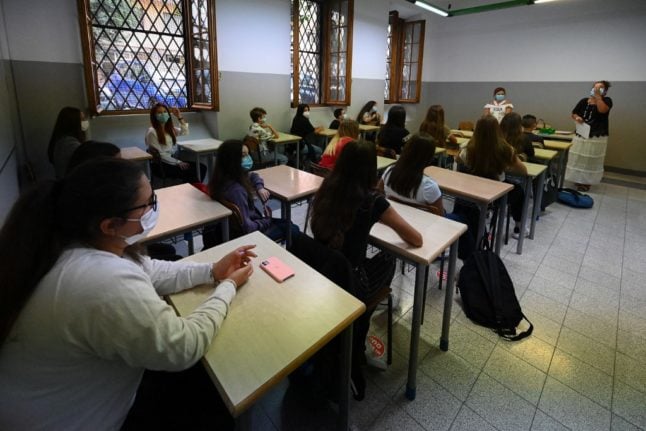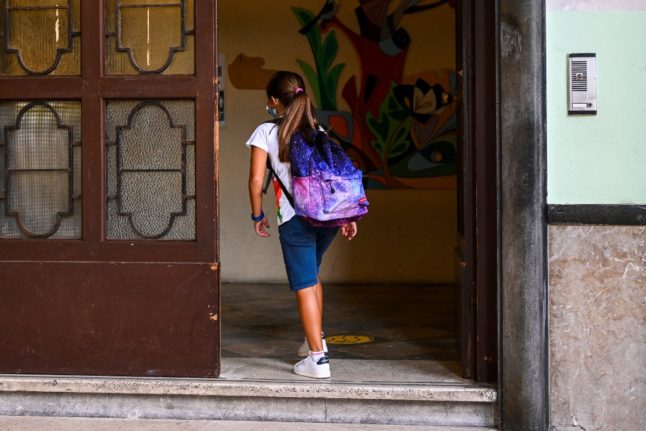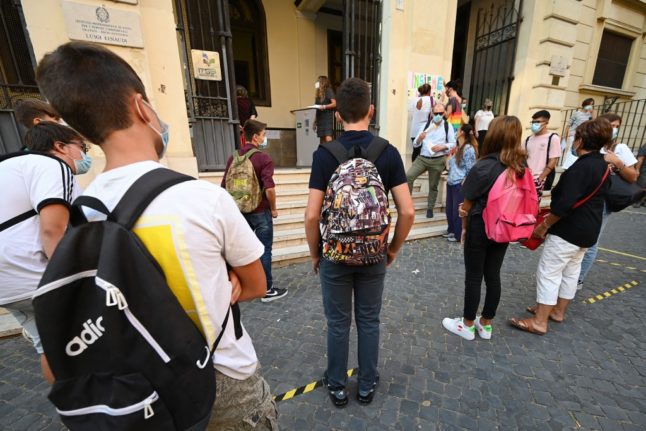Italy’s education ministry has indicated that most pandemic-related precautions will be dropped in the new academic year – including rules requiring teachers to be vaccinated and masks to be worn at all times in class.
An official memo sent out to schools ahead of the 2022-23 school year confirmed that these and other health measures in place last year will expire on August 31st.
READ ALSO: Italy’s unvaccinated teachers to return to class as Covid rules ease
No replacement protocol for schools has been announced – despite the fact that health experts agree the pandemic is by no means over.
For now, it looks as though Italian students of all ages will return to class next month with few health measures in place.
However, this doesn’t mean there will be no precautions taken in schools at all.

File photo: Vincenzo PINTO / AFP
Schools are still required to apply a set of ‘strategic indications’ published by Italy’s Higher Health Institute (ISS), intended to contain the spread of coronavirus at times when the risk of contagion is lower, and to prepare schools to respond quickly in case infection rates surge.
These rules (see them here in full) state:
- Students are allowed to attend class except in the case of fever or a positive Covid test result;
- Pupils or staff “at risk of developing severe forms of Covid” need to wear FFP2 masks;
- Schools should ensure correct hand hygiene and “respiratory etiquette” (covering the mouth and nose when sneezing or coughing, using paper tissues, etc);
- “Frequent air changes” should be ensured in school buildings, as well as regular cleaning, and extra cleaning “in the presence of one or more confirmed cases”.
The health ministry may also bring in further health measures later in the year if deemed necessary, according to Italian media reports.
But for now, there’s no one to make the rules: Italy currently has a caretaker government in place as a month-long election campaign starts this week.
Any new pandemic-related restrictions this autumn, in schools or elsewhere, will depend on the inclinations of the next government – which won’t take office until October at the very earliest.
Italy’s schools restart in mid-September, with the exact dates varying by region.
Find more information about Italy’s Covid-19 health restrictions on the Italian health ministry’s website (available in English).



 Please whitelist us to continue reading.
Please whitelist us to continue reading.
Member comments